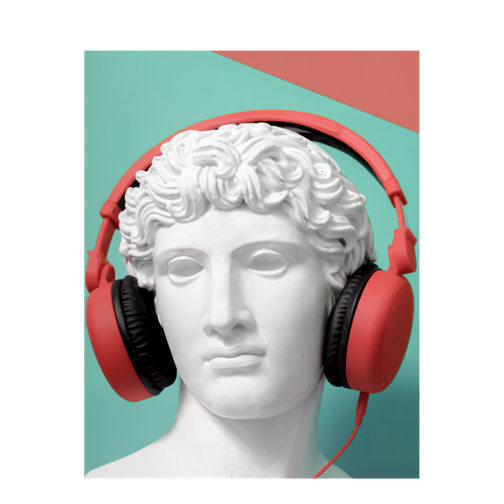
My husband tells a great joke. This elderly couple is sitting with each other and the wife is complaining to her husband how he “never hears her.” He retorts, “No, you have it wrong! You never hear me!” The husband jumps up from the couch and leaves the room. A few minutes later he tip toes back into the living room where his wife is sitting on the couch.
He slowly approached her from behind and whispers, “Honey, can you hear me?”
Nothing.
The husband takes a few steps closer and whispers, “Honey, can you hear me?”
Nothing.
He finally goes right up to her ear and whispers, “Honey, can you hear me?”
Somewhat exasperated, the wife replies, “For the third time, YES!”
Auditory Processing and CAPD
How is your hearing? Actually, it doesn’t matter. You can have perfect hearing and still be affected by what the American Psychiatric Association’s Diagnostic and Statistical Manual refers to as, Central Auditory Processing Disorder. Just like visual processing disorder, for which you can have 20/20 eyesight but struggle to process what you see, when someone has CAPD, their brain struggles to process and filter what they hear. This is one of those “you don’t know what you don’t know” diagnoses that is frequently missed in twice exceptional kids and adults.
How CAPD Can Affect 2e Adults and Children
There are many ways to be 2e. Because of asynchronous development – coexistent strengths and challenges that are many standard deviations apart on the ability scale – a lot of assumptions are made. Assumptions based on abilities or disabilities lead to misunderstandings, misdiagnoses, and missed diagnoses. (For an excellent resource on this topic, see, Misdiagnosis and Dual Diagnoses of Gifted Children and Adults, 2016.)
Have you ever wondered why it’s so hard to focus while in a crowd? Do you prefer conversations and gatherings of smaller groups of people? Do you find yourself exhausted after returning from interactions with other people? Do you seem to “miss the point” or misunderstand a lot of what is going on around you in a meeting, classroom, restaurant, or even a car-ride? Do you ever fake it when you’re in a group situation and then realize you can’t answer questions about your conversation later?
Here’s the good news: there are clues to determine whether your auditory system is overloaded and processing inefficiently. Consider whether you are exhausted, if you have been working hard and depleting your energy, if you find yourself intentionally forcing yourself to focus, and if you are, there is likely a very good reason. Your central auditory system is meant to filter, prioritize, and, well, process auditory information. It can directly affect your ability to focus, to pay attention, to comprehend what is going on around you. Not unlike annoying sensory input (seams in socks, tags in shirts, buzzing lights, etc.), the inability to process auditory information is triggering, jarring, and depletes energy and mood.
The bad news is that often CAPD is overlooked in medical and mental health evaluations. Very few professionals are trained to recognize or test for CAPD, and therefore negative assumptions are made. Have you been accused of not caring when you actually do care? Have your actions or inactions led someone to think you don’t like them? Maybe you’ve been called haughty or told that you aren’t answering or paying attention. Some people diagnosed with CAPD share that they’ve been called lazy, entitled, or rude. CAPD impacts social relationships, familial relationships, school, work, or anywhere you interact with anyone or need to respond to auditory output. Most importantly, untreated CAPD can directly and negatively affect your self-perception.
How to Evaluate for CAPD
To evaluate for CAPD one has to see an audiologist who is well versed in CAPD. Dr. Meghan Locke of Able Kids Foundation shares that testing takes about an hour and must be performed in person. The two research based interventions to treat CAPD include an ear filter or an FM system. The ear filter is personalized and the FM system requires that the person speaking uses a microphone connected to that system. There are also some compensatory strategies like wearing sound cancelling headphones, ear plugs, or air pods, writing down things you want to remember, adjusting expectations, having clear communication, knowing yourself to share when you are unavailable or when you need to isolate yourself to get something done. It is imperative to recognizing when you’re overloaded so you can take some time to step outside or close your eyes to reboot your system.
The bottom line is to know yourself (or your child). If you are trying and you’re exhausted, or if you frequently feel misunderstood and confused, there is something going on that likely is neurological and not behavioral. Treat yourself and others with grace and start by noticing what’s going on for you and then communicating your situation. If you are parenting a child who demonstrates they symptoms above, likely they can’t express what’s going on for them. They just know that “everything is hard.” That’s when you don your detective hat and start asking questions. Let go of assumptions, and find out how and why you or your child is struggling so you can decide how to adequately support him and yourself.

Author: Julie F. Skolnick M.A., J.D.
Julie Skolnick, M.A., J.D., is the Founder of With Understanding Comes Calm, LLC, through which she passionately guides parents of gifted and distractible children, mentors 2e adults, and collaborates with and advises educators and professionals on bringing out the best and raising self-confidence in their students and clients.

